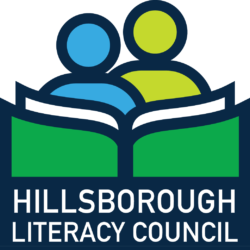Introduction
During this time of seclusion many people will turn to one of their bucket list items to pass the time: to learn a new language! This list of resources aims to help the independent learner acquire the ability to read a foreign language. Getting a good reading knowledge of a language is a great way to be set up to move forward with speaking a language.

The library can help! It is recommended to start with the Mango app and begin to learn the basics of your language of choice. Then, add to your effort by using one of the vocabulary learning tools below, while also venturing into reading some current events from one of the news sources.
Please let me know how your journey is going in the comments!
Language Learning Resources
- Mango-This is a multimedia language learning app that is free to use with your library card. It walks you through different conversational scenarios, uses online text with color coding for grammar comparison, offers a wide variety of languages, and is lots of fun to boot. A good way to learn about a foreign language and culture. Also available as a phone app.
- LanguageTransfer.org-This is an organization that offers free language lessons delivered through audio files.
Grammar Basics In English
To help the independent language learner decode texts in a foreign language, it is a good idea to be brush up on a few grammar basics for when you inevitably compare the structure of your target language with English.
- Grammarly Blog-This is a good explanation of the basics of English Grammar. All languages share some common grammar aspects, for example, they all have nouns and verbs. Being aware of these terms will help you decode a new language. As a bonus, this page describes the “subjunctive mood.” The subjunctive is very rare in English, but much more common in Spanish and Portuguese, for example, so it is a good term to know.
- Word order in English statements – Sentence Structure– This is a video geared toward people learning English, but it is a good video to watch to familiarize yourself with the idea of word order in language. Other languages have different word orders than English. This video is very comprehensive with English word order, which will help prepare you to look for differences of word order in the language you are learning.
- Learning Express-To really go in depth with your grammar knowledge, log onto Learning Express with your library card number. Go to the Adult Core Skills section and you will find “Improve your writing, speaking, and grammar.” You will need to make a free account to download free grammar e-books, but the process is quick and easy. Not only will you get a great grip on English grammar to help you learn to read a foreign language, but your writing in English will get a lot better, too!
Resources For Foreign Grammar

It is not essential to memorize grammar rules to learn a language. However, understanding grammar rules will help you de-code to the texts you are seeing on the page. Often times you will see words you recognize and know the meaning of in your target language, and yet, you have trouble understanding the overall sentence’s meaning. That is when understanding grammatical rules will help.
Note: If you come across a phrase in your new language that doesn’t make sense any way you look at it, you might be dealing with an idiom! For more on idioms, browse these titles in the HCPLC Catalog.
- Here’s a video to show you how to find grammar books and eBooks at the library.
- YouTube-There are thousands of videos on YouTube about the grammar of whichever language you like. Here is one of my favorites about Dutch, as an example. Notice how he says he himself didn’t really know much about his own language’s grammar and had to learn it to make the video. Then watch how quickly it becomes rather complicated! It just shows how tricky grammar can be, and how easily it can turn into a rabbit hole. So, don’t stress it, just consult it when you’re stuck.
Vocabulary, Vocabulary, Vocabulary
One thing you should definitely do to improve the speed of learning a language is to memorize vocabulary. With these tools and tips, this part of the job should be much easier. They will provide you with targeted lists of words to commit to memory, as well as allow you to add your own words to the learning software.
- Root
words, and word forms
- Memrise.com-This is one of my favorites that I have been using for years. The odd spelling of the website’s name comes from the word meme, because you can make memes or use memes from the community to help you remember vocabulary. The software presents you with vocabulary, and then quizzes you in a variety of ways to help you remember. This includes spelling! And the final benefit is that you can either select vocabulary lists made by the community or start your own list.
- Ankiapp-This popular (and free!) app is available for Windows or Apple Desktop, or Android or iPhone. You can get pre-created flashcard decks, or customize and make your own, and see your progress after each study session. Study sessions are created based on your progress with each flashcard and use spaced-interval theories to help your brain retain the knowledge.
- Dictionaries
(monolingual and translate)
- Monolingual
Dictionaries
- Larousse French Dictionary-Includes a conjugation tool as well as recipes!
- And of course, don’t forget to check our catalog for both print and digital dictionaries. Here’s an example: Russian Dictionaries at the library.
- Monolingual
Dictionaries
- Memorization
tips
- For interest, here is a study comparing the effectiveness of different vocabulary learning strategies among Chinese students learning English.

Authentic Sources
Now, find a text and start to explore. If you are hoping to learn a language that uses the same alphabet as we do in English, you’ll be off to a fast start. If you need to learn a new alphabet, it may require extra effort. If you’d like help finding sources on other alphabets, you can always use the Ask a Librarian Service. Here are some examples: Greek, Cyrillic (Russian), Korean
In many cases, news articles are good sources to use because they cover topics that one can easily read about in English news sources. News sources are not generally written at an advanced level, so you won’t be dealing with a lot of metaphorical language or specialist terminology. Always ask yourself after you read, “What was this reading about?” If you can answer that, then you’re on your way.
- Youth literature-The library has a lot of youth literature in Spanish. If you are looking for something else, you may need to search the web. If you just want to see some excerpts, Google Books is there for you with international bestsellers of young adult literature, like this example of Harry Potter and the Sorcerer’s Stone in Italian.
- News
organizations
- BBC-The BBC offers news in a wide variety of languages. Scroll to the bottom of the page to read and watch news stories from around the world. Also, they offer a very wide variety of archived language courses.
- Learn Arabic with Al Jazeera
- Parallel
texts
- Paralleltext.io-This is an interesting website that has classic stories and novels that can be read in a variety of languages, and you can switch over to English to compare each paragraph. The site will also read you each sentence in the target language.
- Here is a sample from the library’s catalog.
- Music
- The library offers a variety of CDs of music from around the world. Here’s an example search for Portuguese.
- YouTube, of course. Usually a search for “music” and a country or language does the trick.
Other Sources
- Open Textbook Library-Get free language textbooks online! Who doesn’t love those?
- And, for inspiration: The First 20 Hours – How to Learn Anything, and How to Learn any Language in Six Months
General Reading Tips and Tricks
- Try to read on topics with which you are already familiar.
- Avoid advanced fiction in the beginning, stick with news and simple texts.
- Skim read over a new text first, look for new vocabulary.
- Skim read for main idea, then read again for detail.
- Use context clues to learn new vocabulary. Here’s a great page that shows all of the ways to do this. It’s for younger readers, but the techniques are the same for language learners.
Good luck! Bonne chance! ¡Buena suerte! 祝你好運! Powodzenia!

